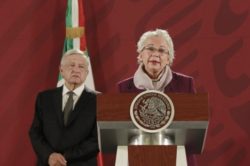The ‘fabricated culprit’ is the person who has been or continues to be a victim of practices contrary to legality, to the search for truth, to the normative principle of the rule of law.
Such practices serve only one purpose, namely:
- That an innocent person plays before public opinion and the State the role of delinquent, criminal, internal enemy of society;
- That the innocent person is attributed legal, civic and moral responsibility for the commission of high impact crimes;
The following is a list of the main practices aimed at manufacturing culprits:
- Arbitrary detention;
- Abuse of power and use of excessive force at the time of arrest;
- Politicization of the justice and law enforcement apparatus;
- Unnecessary extension of preventive detention beyond the term established by law;
- False statements by police officers;
- Semblance of evidence or weapons;
- Inducement or bribery of witnesses;
- Fabrication of incriminating statements and ‘coerced confessions’;
- Unjustified delay in bringing the accused before the Public Prosecutor’s Office;
- Legal and/or television editing;
- Failure of the authority to notify consular authorities;
- Singular or repeated use of physical and psychological torture;
- Subsequent cover-up of acts of torture already perpetrated;
Harassment of the family; - Denial of access to an adequate defense;
- Deprivation of the ability to exercise objective judgment for the incarcerated person;
- Prison arrangements aimed at cultivating isolation and hopelessness;
- Deprivation of access to adequate medical treatment;
- Systematic delay in conducting hearings;
- Delay in investigations related to acts allegedly violating human rights;
- Violation of the presumption of innocence through sensationalist use of the media;
- Television montage and ‘fake news’;
- Creation of ‘false victims’, ‘false witnesses’;
- Media interventions by public accusers;
- Threats and/or reprisals against investigators, journalists, activists; Parallel convictions in
- the media exerting pressure on the judge;
- Influence peddling;
- Concealment of the real perpetrator(s) of the illicit act committed;
- Manifestation of prejudgment of guilt on the part of the judge;
- Excessive severity at the time of determining the sentence;
- Any type of action on the part of the authorities that contravenes the procedural provisions enshrined in constitutional acts, penal codes, as well as international treaties previously ratified by the government of the country;
In all cases in which, at the end of a rigorous process of analysis, we are able to prove that at least one of the elements of the list was committed against the defendant and in such a way that the thesis of guilt becomes untenable, En Vero requires the application of the following fundamental principles that govern criminal practice in any state of law and benefit the defendant:
- Principle of reasonable doubt or in dubio pro reo;
- Recognition of innocence;
- Prohibition of cruel and inhuman treatment;
- Right to full reparation of damages.




